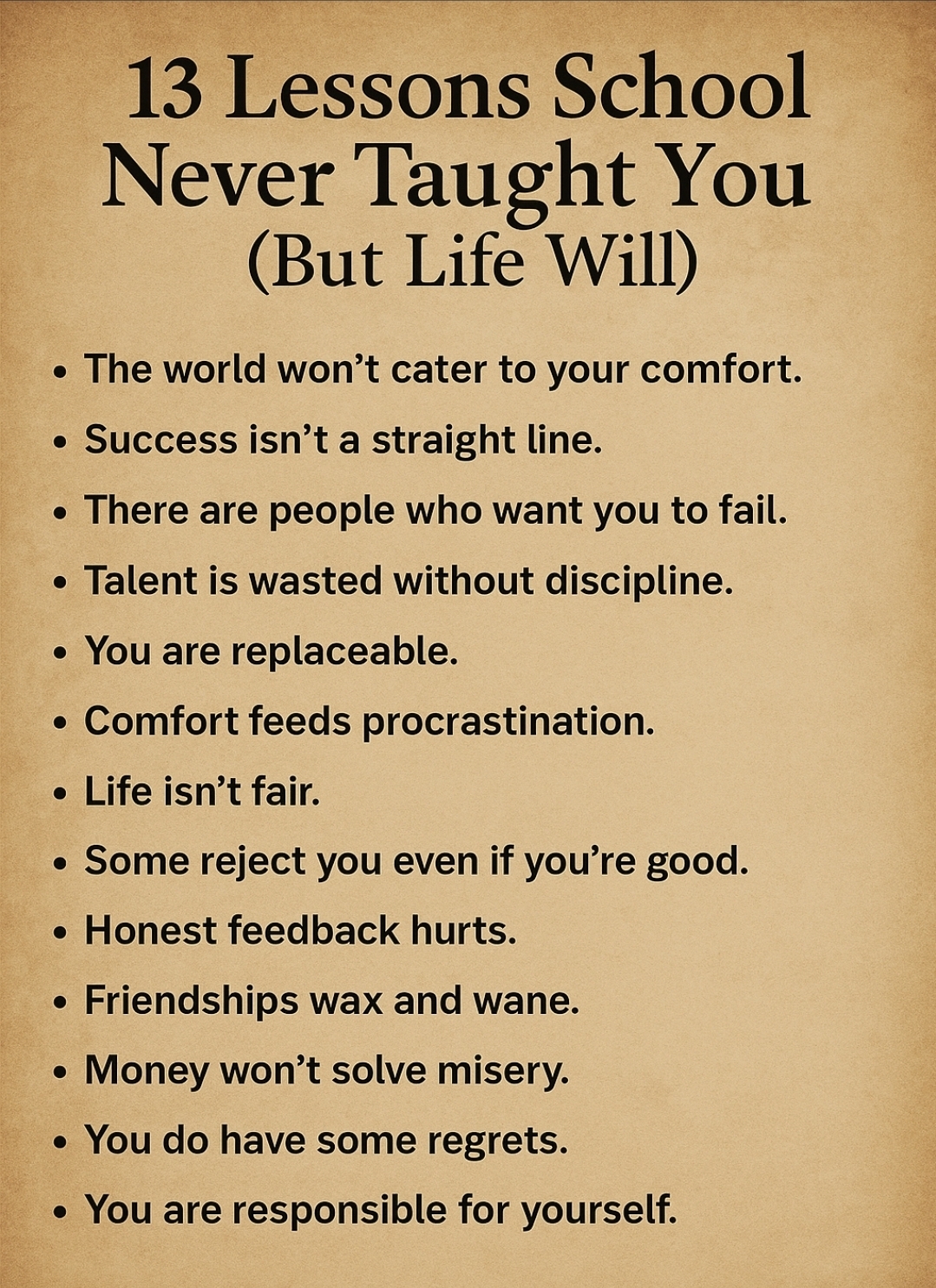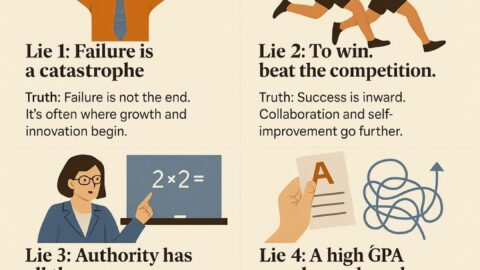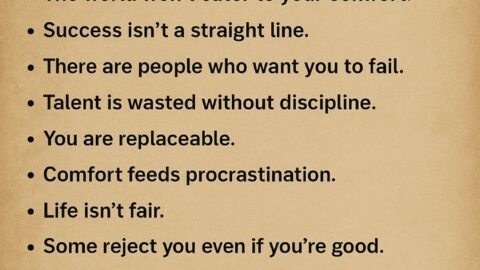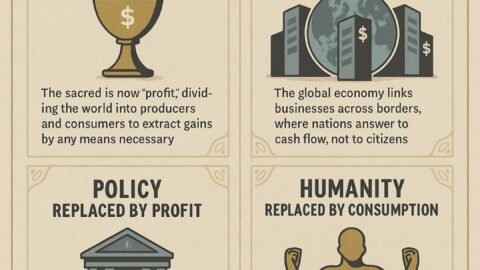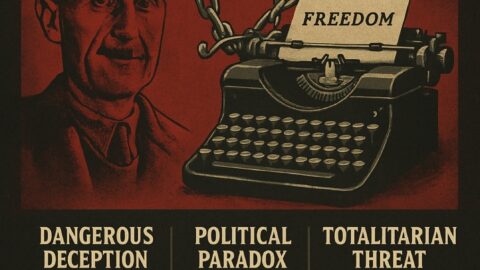Life has a funny way of teaching lessons we never got in school. Instead of neat report cards or tidy definitions, the real world hands us crooked pancakes, failed relationships, and paradoxes that take years to understand. These aren’t failures—they’re the hidden curriculum of adulthood.
Here are 13 life lessons you won’t find in a textbook, but that quietly define what it means to grow up.
1. The First Pancake Rule
The first attempt at anything will be clumsy—your first pancake, first business, first date. That awkward start isn’t proof of failure, it’s proof of courage. Most people quit too soon, mistaking “messy” for “impossible.” The truth? The first pancake isn’t meant to be perfect. It’s the one that makes the rest better.
2. How to Spot a Lie Without Words
Forget the myth about eye contact. Liars often look more intently to seem believable. The real giveaways are micro-expressions, too much detail, or a sudden shift in tone. Once you learn to see past the mask, you stop being fooled by bad actors—and stop clapping for them, too.
3. The Real Definition of Success
Success isn’t the job title, house, or car brochure life sold you. True success is freedom—living on your terms without apology. Whether that looks like a penthouse or a cabin doesn’t matter. The common denominator is choice. If you need external validation to feel successful, you’re still renting your self-worth.
4. Walking Away from People You Love
We’re taught to fight for love, but not when to let go. Sometimes holding on turns love into resentment. Walking away isn’t cowardice—it’s clarity. It’s choosing to remember someone fondly instead of bitterly, and giving both of you back your hands.
5. Everyone Is Faking It
The confident speaker, the polished executive, the person who never stumbles—they’re improvising, too. Confidence is just experience stacked on uncertainty until it looks like certainty. Once you realize everyone’s winging it, you stop feeling behind. You were always qualified to play.
6. Arguing Without Destroying the Relationship
Most of us learn only two styles: avoidance or attack. Real arguing isn’t about victory, it’s about understanding. Fight so the relationship wins, not so you win. Pick battles wisely, pause when needed, and remember—connection matters more than the scoreboard.
7. Your Feelings Are Real (But Not Always Accurate)
Emotions are like warning lights—they tell you something’s happening, but not always what. Anxiety doesn’t always mean danger; anger doesn’t always mean injustice. Pausing to ask “What’s really happening?” helps you respond instead of react. Feelings are valid, but they aren’t flawless GPS.
8. How to Be Alone Without Feeling Lonely
Loneliness is a mindset, not a circumstance. When you learn to enjoy your own company, you stop tolerating bad company just to fill silence. Solitude becomes maintenance for the mind, not punishment. The more time you spend there, the less you fear it.
9. Arguing Without Burning the Bridge (Again)
Winning an argument at the cost of a relationship is hollow. Life isn’t debate club. The best arguments attack the problem, not the person. Ask questions. Listen more than you defend. Sometimes, letting them leave thinking they “won” is strategy, not weakness. The goal isn’t victory—it’s keeping the door open for the next laugh together.
10. Most Rules Are Negotiable
As kids, rules seemed absolute, like physics. Adulthood reveals most are just preferences dressed as laws. Gatekeepers aren’t omnipotent—they’re reading from scripts. And scripts can be rewritten. The real power isn’t breaking rules—it’s realizing some were never real to begin with.
11. Reading the Room (and Knowing When to Leave It)
Social intelligence isn’t charm—it’s sensitivity. Notice the clock glances, the half-smiles, the body language shifts. Most people miss these signals while rehearsing their next line. The wise adapt, or leave quietly with dignity. Not every door is worth keeping open once you’ve seen what’s inside.
12. You’re Allowed to Change Your Mind
Opinions aren’t tattoos—they’re drafts. Growth requires changing your mind when new information arrives. Holding onto outdated beliefs isn’t loyalty; it’s ego. Some will call it hypocrisy. That’s fine. You don’t owe eternal consistency to your past self—you owe honesty to your present one.

13. Life Is Shorter Than You Think, Longer Than You Feel
Life is a paradox: short enough to waste if you’re not paying attention, long enough to rebuild after mistakes. That means taking the risk now, saying the thing now—because moments don’t always circle back. But it also means you haven’t “run out of time.” People start over at 30, 50, even 80. Life isn’t a straight road—it’s an ocean. You can’t control the tide, but you can choose how to swim.
Final Thought
School gave us structure but missed the most important lessons. Real life is where you learn that first drafts are messy, feelings aren’t facts, success is freedom, rules bend, and time is both fleeting and forgiving.
If there’s one takeaway, it’s this: stop waiting for the perfect pancake, the perfect plan, or the perfect moment. Start flipping. The rest gets better.
Here’s a point-by-point breakdown:
13. The First Pancake Rule
- Metaphor: The first pancake is always messy, uneven, or undercooked.
- Application: First attempts in life (painting, business, dating, writing, music) will be awkward.
- Trap: People mistake clumsy beginnings for proof of inadequacy.
- Reality: No one judges a chef by the first pancake. The skill develops after repetitions.
- Takeaway: The first version is never perfect—it’s simply the foundation for improvement.
12. Spotting Lies Without Words
- Myth: Liars avoid eye contact.
- Reality: Many maintain too much eye contact to seem believable.
- True Clues: Micro-expressions, tone shifts, unnecessary details, body language mismatches.
- Application: Spotting lies doesn’t make you cynical—it makes you accurate.
- Takeaway: Life is full of theater. Don’t clap for bad actors.
11. The Real Definition of Success
- False Script: Job → house → title → approval.
- Truth: Success = freedom to live life on your terms.
- Common Denominator: Choice, not possessions.
- Trap: Depending on external approval = “renting” your self-worth.
- Takeaway: True success = autonomy and unapologetic authenticity.
10. Walking Away from People You Love
- Cultural Myth: If you love someone, you always hold on.
- Reality: Sometimes holding on turns love into resentment.
- Courage: Walking away can protect both people from bitterness.
- Trap: Most learn this too late—after staying too long.
- Takeaway: Love is sometimes giving back freedom, not clinging.
9. Everyone is Faking It
- Illusion: Confident people know what they’re doing.
- Reality: They’re improvising, just more convincingly.
- Trap: Comparing yourself to others’ highlight reels.
- Shift: If everyone is winging it, you’re qualified too.
- Takeaway: Certainty is built from stacked experiences—not innate.
8. Arguing Without Destroying the Relationship
(first mention)
- Old Styles: Avoid or attack.
- Reality: Productive arguing = making the relationship win.
- Skills: Pick battles, pause, compromise, value understanding over victory.
- Takeaway: Connection matters more than being right.
7. Feelings are Real, but Not Always Accurate
- Emotions = Warning Lights: They signal something, but not always the truth.
- Examples: Anxiety ≠ danger, anger ≠ actual wrongdoing.
- Trap: Reacting instead of reflecting.
- Skill: Pause and ask, “What’s really causing this?”
- Takeaway: Feelings are valid but not flawless GPS—they can mislead.
6. How to Be Alone Without Feeling Lonely
- Distinction: Alone = physical. Lonely = psychological.
- Trap: Filling the void with bad company out of fear.
- Freedom: Enjoy your own company = stop tolerating toxic relationships.
- Practice: Read alone, walk without distraction, savor silence.
- Takeaway: Alone time is mental maintenance—not punishment.
5. How to Argue Without Burning the Bridge
(second mention, more detail)
- Difference: Debate club vs. real life.
- Trap: Trying to win instead of protect the relationship.
- Tools: Attack the problem, not the person. Listen more. Ask questions. Let pride go.
- Hardest Part: Sometimes let them “win” to preserve the bond.
- Takeaway: Goal = leaving the door open for the next conversation, not humiliation.
4. Most Rules are Negotiable
- Childhood Belief: Rules are like gravity—unchangeable.
- Adult Reality: Many rules are just preferences disguised as absolutes.
- Insight: Bureaucracies bend for those who question or push.
- Trap: Assuming all boundaries are permanent.
- Takeaway: Many limits dissolve once you realize they were never real rules.
3. How to Read the Room (and When to Leave It)
- Skill: Notice subtle cues—shifts in body language, smiles, glances at the clock.
- Trap: Missing cues because you’re rehearsing what to say next.
- Value: People want company who adapt, not bulldoze.
- Lesson: Sometimes dignity = knowing when to exit quietly.
- Takeaway: Not every door is worth keeping open after seeing what’s inside.
2. You’re Allowed to Change Your Mind
- Myth: Opinions are tattoos—permanent, proof of loyalty.
- Trap: Refusing to evolve to avoid seeming weak.
- Truth: Changing your mind = evidence of growth, not hypocrisy.
- Challenge: Others will call it inconsistency—but that’s their limitation.
- Takeaway: You owe honesty, not loyalty to your past self.
1. Life is Shorter Than You Think, Longer Than You Feel
- Paradox: Youth feels endless, but decades vanish quickly.
- Lesson: Life is short enough to waste if inattentive, long enough to rebuild after mistakes.
- Urgency: Take risks now. Say the thing now.
- Comfort: You can restart at any age—30s, 50s, even 80s.
- Takeaway: Life isn’t a straight road, but an ocean—you don’t control tides, but you choose how to swim.
Overall Theme:
These 13 lessons strip away illusions about success, love, rules, and time. They replace old scripts with wisdom: don’t fear first attempts, value choice over approval, recognize lies and fake confidence, argue with care, allow growth, and treat life as both fleeting and resilient.

